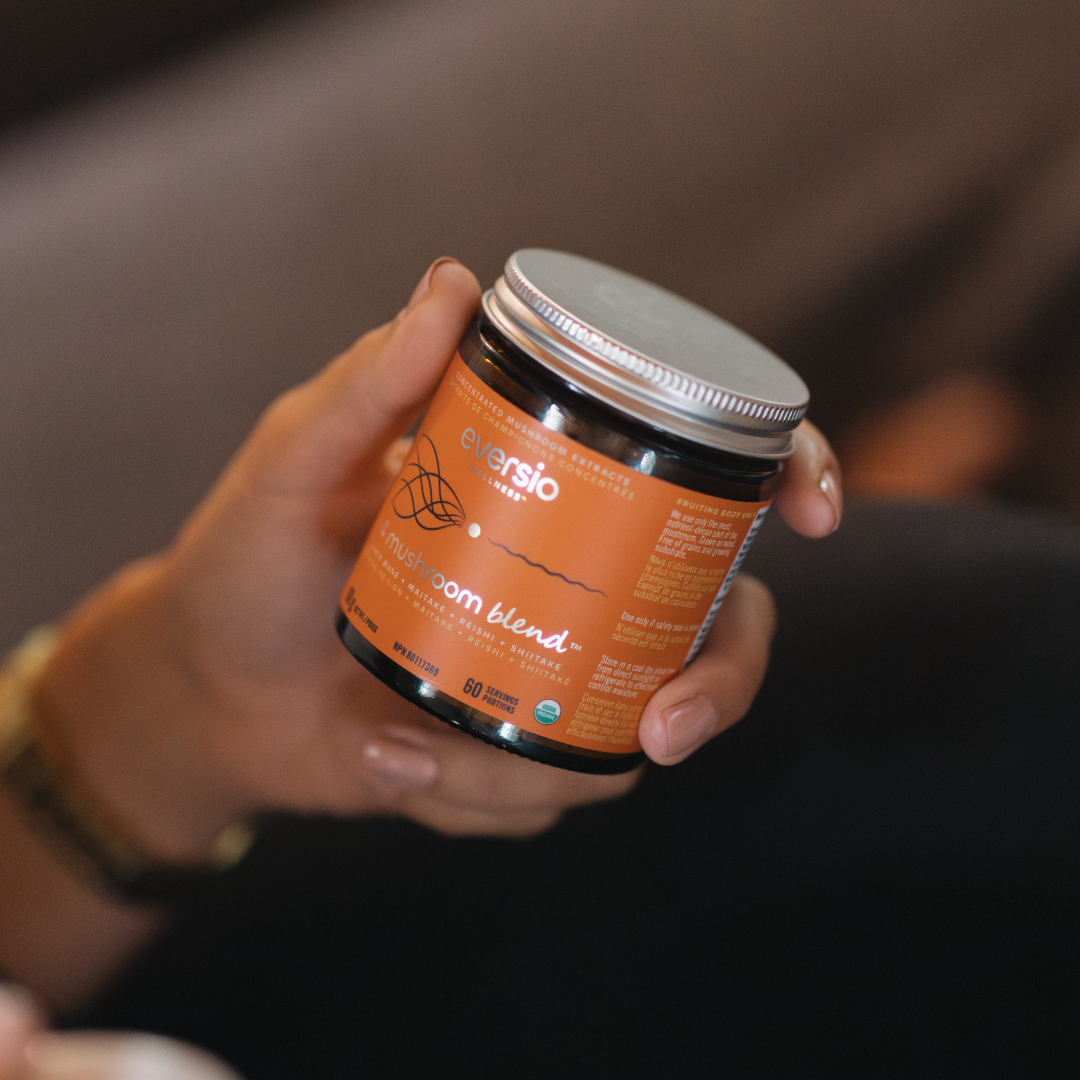In our fast-paced contemporary world, fatigue and low energy have become prevalent outcomes of persistent stress and excessive exertion. The unrelenting pressures of work, in conjunction with personal obligations, can result in sensations of both physical and mental exhaustion.
Fortunately, the natural world provides an assortment of solutions to aid us in rejuvenating ourselves and revitalizing our energy levels. Within these natural offerings, adaptogens stand out as potent elements that assist our bodies in adapting to and managing stress. In this blog, we delve into the remarkable rejuvenating characteristics of two mushrooms for energy, incredibly adaptogenic ones— Reishi and Cordyceps. By examining their distinct therapeutic attributes, we uncover how these fungi can assume a crucial role in providing us with an energy boost, improving vitality, and facilitating fatigue relief.
Understanding Fatigue: Causes and Effects
Fatigue and low energy are not solely outcomes of feeling overwhelmed or drained; they represent intricate conditions with substantial implications for our overall health and well-being. To truly understand the scope of fatigue and low energy, it's important to delve into the foundations that explain their effects on our physical state. Studies have indicated that persistent exhaustion and low energy can disturb the delicate equilibrium of our neuroendocrine system, causing disruption in crucial physiological processes. Prolonged tiredness triggers the release of stress hormones, like cortisol, which can undermine immune function – meaning the need for immune support – disturb sleep cycles and impede mental clarity.
Additionally, experiencing fatigue and low energy has been correlated with an elevated susceptibility to cardiovascular ailments, chronic fatigue, depression, and other mental health maladies. Understanding the interplay between fatigue, low energy, and our well-being is pivotal for pinpointing effective strategies for recovery, such as mushrooms for energy. By acknowledging the scientific side, we can gather valuable insights into the profound repercussions of these conditions and recognize the urgency of implementing comprehensive interventions.

Elevate Your Energy Naturally with Cordyceps Mushroom Supplements
The Cordyceps mushroom emerges as a promising natural energy solution with significant potential in alleviating fatigue and low energy levels. Recent scientific studies have illustrated the inner workings that contribute to Cordyceps' advantages in countering feelings of exhaustion. One pivotal mechanism centers around Cordyceps' ability to improve the production of cellular energy, facilitated by bioactive constituents like cordycepin and adenosine [1].
Through the augmentation of adenosine triphosphate (ATP) synthesis, Cordyceps facilitates mitochondrial performance and refines energy metabolism, effectively addressing the draining tiredness linked to low energy levels. Moreover, Cordyceps showcases notable antioxidant and anti-inflammatory properties, which play a role in shielding against oxidative strain and reducing inflammation—both commonly escalated during times of diminished energy [2].
Furthermore, Cordyceps showcases adaptogen traits, aiding the body in acclimatizing to and managing stress reduction, thereby fostering holistic wellness [3]. By harnessing these mechanisms, the Cordyceps mushroom presents a multi-dimensional strategy to counteracting fatigue and low energy, encompassing both the physical and mental aspects.
Cordyceps: The Ultimate Natural Performance Enhancer
Many athletes now turn to Cordyceps nutraceuticals as mushrooms for energy to improve their endurance, and increase their stamina. Remarkably, these benefits arise without reliance on caffeine or any potentially addictive chemical stimulants.
Clinical trials have demonstrated Cordyceps' potential to enhance the body's energy-producing pathways and elevate ATP levels—the molecules that ferry energy within our cells [4]. Additionally, a prominent study underscored this potential as mice treated with Cordyceps exhibited significantly prolonged periods of exhaustive swimming when compared to control groups [5]. Delving deeper, the study looked into various biochemical markers of fatigue and found Cordyceps to be associated with diminished levels of serum lactic acid, urea nitrogen, creatine kinase, aspartate aminotransferase, alanine aminotransferase, and malondialdehyde.
Impressively, it also improved glycogen content in both liver and muscles, while simultaneously escalating the presence of numerous potent antioxidants [6]. Overall, these discoveries suggest that Cordyceps, when embraced as a functional food or medicine, holds the potential to exert a potent anti-fatigue influence.

Reishi Mushroom: A Natural Calming Supplement
Reishi's historical significance is rooted in its abiloity to induce a profound sense of calmness, aiding individuals in achieving a truly restful sleep [7]. Understanding the crucial role of sleep in our overall well-being underscores the importance of this effect, as insufficient sleep has been closely linked to an array of health conditions [7]. The impact of chronic sleep problems extends to encompass cardiovascular disease, obesity, elevated mortality rates, and even diabetes [7].
Scientific studies have unveiled that Reishi possesses the capability to augment the levels of neurotransmitters that actively promote sleep, acting as messengers that facilitate seamless communication within the nervous system [7]. Furthermore, Reishi's positive modulation of the gut microbiota adds another layer to its influence. Recent investigations highlight how shifts in the bacterial landscape of the gut can significantly impact sleep quality through the intricate network known as the gut-brain axis [7].
Collectively, the study illuminates the ways in which Reishi mushroom supplements can significantly enhance sleep quality, functioning through pathways reliant on microbiota and intertwined with serotonin [7]. This illustrates the potential of Reishi as a natural energy and holistic solution for improving sleep and, by extension, overall well-being, acknowledging the pivotal role that restorative sleep plays in energizing our bodies and mitigating fatigue.
Another study focused on Reishi's fruiting body extract yielded encouraging results. The study indicated that incorporating a Reishi mushroom supplement into one's regimen for three consecutive days could potentially result in an augmentation of overall sleep duration and the extension of non-rapid eye movement (NREM) sleep phase, thereby fostering a more rejuvenating sleep [20]. The significance of quality sleep in replenishing energy levels and alleviating fatigue cannot be overstated. This positive impact of Reishi on sleep patterns might be attributed to its capacity to modulate cytokines, particularly TNF-alpha, a key player in regulating sleep and enhancing the NREM phase [20].

Exploring the Benefits of Mushroom Coffee
Incorporating functional mushrooms for energy into your daily coffee ritual presents a natural strategy for curbing increased coffee consumption, staving off midday slumps, and an energy boost over the course of the day. The potential applications of mushroom coffee encompass increased energy, sharpened focus, and relief from fatigue, a wide array of benefits, all without the edgy repercussions linked to increased coffee intake. While pre-blended mushroom coffee options can be purchased, integrating mushroom extract blends or mushroom extract capsules into your coffee has comparable or even better efficiency.
We hope you have found this article informative. If you have any questions or comments, please feel free to leave them in the comment section below!
Related Articles
Want to learn more about cordyceps and reishi mushrooms? Check out these related blogs.




















Leave a comment
All comments are moderated before being published.
This site is protected by hCaptcha and the hCaptcha Privacy Policy and Terms of Service apply.